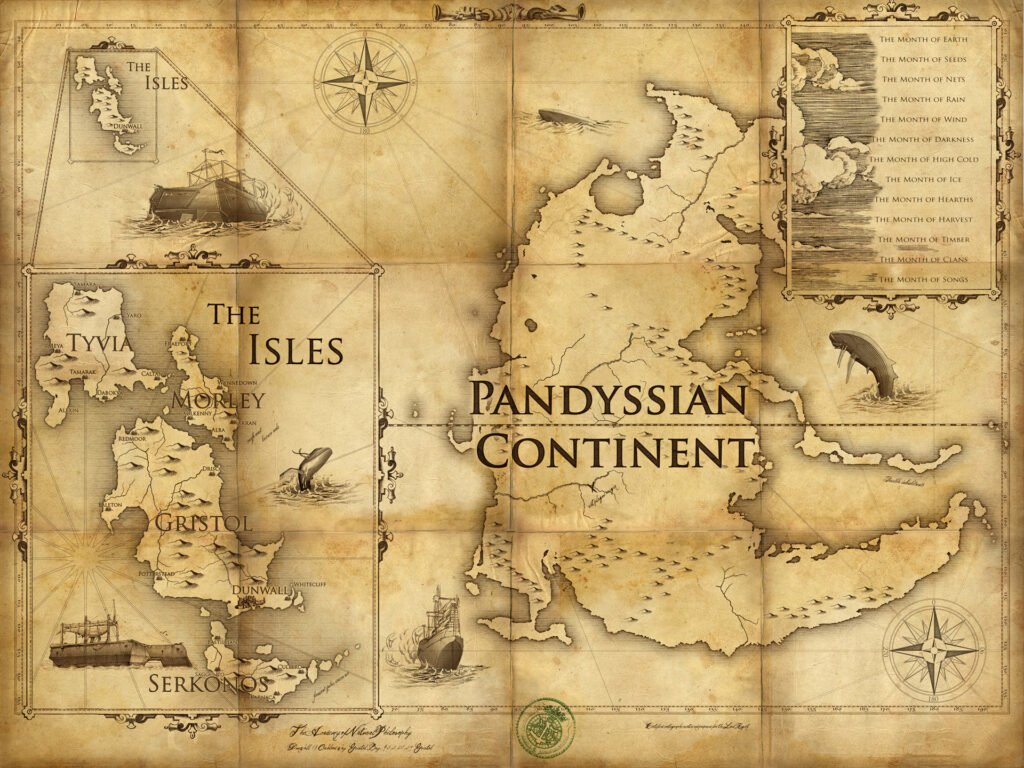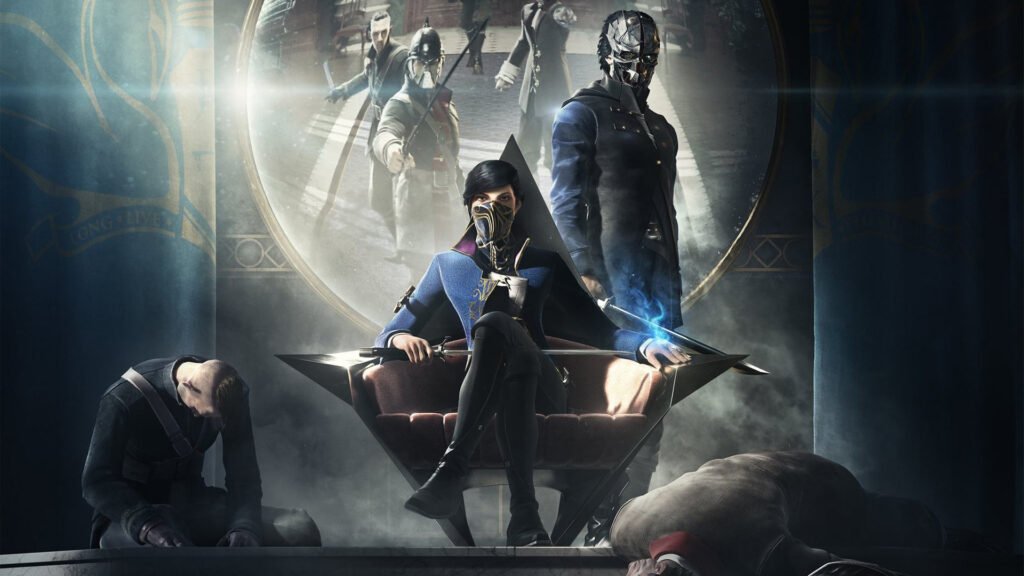The cobbled streets of Dunwall whisper tales of plague and corruption. Here, beneath the ever-present shroud of whale oil haze, the fate of an empire hangs by a thread. In the Empress Jessamine’s death, a storm brews, its tremors felt by every pauper and aristocrat alike. Was her murder a tragic misstep, or a cruel twist of fate that could have birthed a brighter future had Corvo not donned his mask? Let’s explore this fascinating Dishonored ‘what-if’ scenario.
Empire in turmoil
Dishonored is a game set in the fictional Empire of the Isles, a collection of four island nations that are loosely based on 19th century Britain and its colonies. The game follows the story of Corvo Attano, the Royal Protector and lover of Empress Jessamine Kaldwin, who is framed for her murder and the kidnapping of their daughter Emily by a group of conspirators led by the Royal Spymaster, Hiram Burrows.
The plot of the first Dishonored sees Corvo escapes from prison with the help of a loyalist group who seek to restore Emily to the throne, and is granted supernatural powers by a mysterious figure known as the Outsider. Keeping spoilers to a minimum in the cannon ending, Corvo succeeds in putting his Emily back on the throne.
A Different World
In this article, we will imagine a different outcome, one where the plot against the Empress succeeds and Corvo fails to stop it. What would happen to the Empire and its people then? How would this change the course of history and the fate of the world? To answer these questions, we will compare and contrast the events of Dishonored with some of the most influential and dramatic revolutions and conspiracies that have shaped our own world. We will also examine the role of the Outsider, the mysterious and enigmatic god of the Void, who watches over the world with curiosity and grants his mark to those he deems interesting. How would his involvement affect the outcome of this alternate timeline? Let’s find out.
The first thing to consider is the nature and the motive of the conspiracy against the Empress. In the game, we learn that the Royal Spymaster, Hiram Burrows, orchestrated the coup because he was dissatisfied with the Empress’s rule and her policies, especially her efforts to negotiate peace with the other nations of the Isles and her compassion for the poor and the sick. He believed that the Empress was weak and naive, and that he could do a better job at ruling the Empire through Emily. He also had a personal grudge against Corvo, who was the Empress’s lover and the father of Emily. He enlisted the help of several influential and powerful allies, from the aristocracy and the clergy. Together, they planned to assassinate the Empress, kidnap Emily, frame Corvo, and seize power in the name of the Lord Regent.
This plot bears some resemblance to some of the historical conspiracies that have attempted to overthrow or assassinate monarchs, such as the Gunpowder Plot of 1605, in which a group of Catholic extremists tried to blow up the English Parliament and kill King James I, or the assassination of Archduke Franz Ferdinand of Austria in 1914, which sparked the First World War. These events, like the Empress’s assassination, were catalysts for significant political upheaval, leading to wars and revolutions. However, unlike these historical examples, the plot against the Empress was not motivated by religious or ideological differences, but by personal ambition and greed. The conspirators did not have a clear vision or a noble cause for the future of the Empire, but only sought to enrich themselves and their allies, while oppressing and exploiting the masses. They also did not have the support or the sympathy of the majority of the people, who respected the Empress and her daughter, and who despised and feared the Lord Regent and his regime.
In the game, we see that the death of the Empress and the rise of the Lord Regent plunged the Empire into a state of chaos and misery. The Lord Regent imposed a harsh and brutal dictatorship, enforcing martial law, censoring the press, executing dissenters, and exploiting the resources of the other nations. He also failed to contain the rat plague, which he himself had spread throughout the city of Dunwall to eliminate the lower classes, killing thousands of people and turning them into zombie-like creatures called Weepers.
No Rest for the Average Man
With the second installment we can see that even with Emily in power and 15 years after the first game the situation of the average person within the empire had not improved much. Inequality was still at its height and the powerful still lorded over the lower classes with impunity. Had Emily not been restored to power the pressure put by the Lord Regent on the populous could have boiled over into an all out revolution.
This scenario could be compared to some of the historical revolutions that have successfully overthrown monarchies to establish democracies, such as the American Revolution, in which the colonists rebelled against the British crown and founded the United States of America, or the French Revolution, in which the people rose up against the absolute monarchy and proclaimed the Republic. These revolutions, were inspired by the ideals of liberty, equality, and fraternity, and sought to create a new society that would respect the rights and the dignity of the people.
However, unlike these historical examples, even the Loyalists’ plan did not involve a radical change in the system of government, but rather a restoration of the status quo. They did not want to abolish the monarchy, but to preserve it, with them puppeteering Emily from the shadows. They did not want to empower the people, but to gain more power for themselves, but with an outwardly more humane regime. They did not want to create a new world, but to restore the old one.
Path Towards a Revolution
To begin we can examine the factors and the conditions that could trigger such a revolution. In this timeline where the plot against the Empress succeeds, and Corvo fails to stop it. One of the main factors that could fuel a revolution is the rat plague. Even before the Lord Regent came into power the empress was having a hard time controlling the plague. With the lord Regents apathy towards the poor of Dunwall it would only be a matter of time that the people revolt.The plague is pretty much a directly analogous to the Black Death in Europe which led to the Peasants’ Revolt of 1381 in England. Another straight forward reason would be a the Lord Regents oppression, apathy and complete economic collapse of Dunwall, this could mirror the French and Russian revolutions where the apathetic and oppressive aristocratic class was violently deposed by the poor working class.
Civil War in the Isles

The emergence of a democratic government in the Isles could reflect the birth of the United States or the tumultuous yet transformative French Revolution. However, as history teaches us, the path to democracy is often paved with strife. The Isles could face a period akin to the American Civil War or the Spanish Civil War, where factions within a divided nation battle for their vision of the future. The Outsider’s role in this alternate history could be compared to the influence of superstition and occultism in shaping historical events. His powers and the mark bearers would have the most amount of impact on this new stage. He has shown to give his marks to all that intrigue him just to see what happens, so it is quite likely that two mark bearers could find themselves on opposing sides in a civil war.
Like the civil wars of the real world, one side could be aligned with the republicans or people aiming for a more radical change to the system and the other with the side aimed at maintaining or reinstating the status quo. This is similar to the Chinese and Russian civil wars of the early and mid 20th centuries. As the empire is situated on islands, the factions would most likely isolate themselves on islands where support for their ideology is the strongest and a potential cold war could begin if the factions are equally matched or a world war if there are multiple factions. This new world would either mirror the current political climate between China and Taiwan after their civil war, or Europe after the fall of the Austro-Hungarian Empire after World War 1.
Drawing from historical lessons, we speculate that the Isles’ post-Kaldwin era could lead to either a stable democracy or plunge into further chaos, much like the divergent outcomes of the American and French Revolutions. In conclusion, the fall of Empress Kaldwin could have been a historic turning point for the Isles, echoing the profound impacts of monarchical downfalls in our own world. Dishonored’s rich narrative, interwoven with themes of power, betrayal, and redemption, provides a compelling canvas to explore these historical parallels.
If you enjoyed this article do check out Poggers Memes‘ review on Alan Wake 2 or our thoughts on Jujutsu Kaisen season 2.
